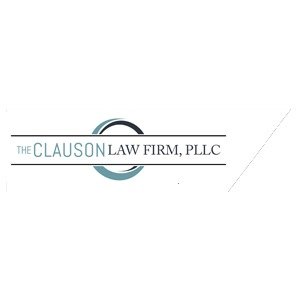Best Tax Increment Financing Lawyers in Durham
Share your needs with us, get contacted by law firms.
Free. Takes 2 min.
List of the best lawyers in Durham, United States
About Tax Increment Financing Law in Durham, United States
Tax Increment Financing (TIF) is a public financing method used as a subsidy for redevelopment, infrastructure, and other community-improvement projects in many cities, including Durham, United States. TIF is designed to encourage economic development in areas that may otherwise not attract private investment. The TIF process involves designating an area for development and capturing the future tax revenues generated by that development to repay the investment. This funding mechanism is utilized to breathe new life into underdeveloped or blighted areas by encouraging investment from the private and public sectors.
Why You May Need a Lawyer
Engaging a lawyer skilled in TIF matters can be crucial in several situations. Some common scenarios include:
- Understanding Eligibility: Determining if a specific area qualifies for TIF can be legally complex.
- Negotiations: Professional negotiation with local authorities on TIF terms and agreements are often necessary.
- Compliance: Ensuring compliance with local, state, and federal laws regarding TIF.
- Contract Review: Reviewing project proposals and contracts to ensure fair terms and investment security.
- Dispute Resolution: Handling any disputes that might arise during the project implementation phase.
Local Laws Overview
Tax Increment Financing in Durham is governed by both state and local laws. Key aspects include:
- Eligibility Criteria: Projects must demonstrate potential economic benefit, such as job creation or increased property values.
- District Designation: Areas must be officially designated as a TIF district by local government authorities.
- Public Participation: There is often a requirement for public hearings and stakeholder input to ensure community alignment and transparency.
- Financial Oversight: Financial reports and audits are typically required to ensure funds are used as intended.
- Duration Limits: TIF districts have time limits, usually between 15 to 30 years, after which tax increments revert to the general tax pool.
Frequently Asked Questions
1. What is the primary purpose of TIF?
The primary purpose of TIF is to stimulate economic growth and development in blighted or underdeveloped areas by leveraging future tax revenues to finance current improvements.
2. How is a TIF district created?
A TIF district is created when a municipality designates a geographical area for redevelopment and improvement through legislative approval.
3. Who benefits from TIF?
The community benefits from infrastructure improvements, job creation, increased property values, and a broader tax base. Developers benefit from financial incentives to invest in the area.
4. Are there risks associated with TIF?
Yes, TIF can carry financial risks, such as insufficient tax increment to cover redevelopment costs, leading to general fund liabilities for municipalities.
5. Can TIF affect local taxes?
While TIF initially diverts incremental taxes to repay development costs, it often leads to long-term tax base growth and potentially lower tax rates due to improved local economies.
6. How does TIF financing work?
TIF captures the projected increases in property tax revenues from new development to finance the redevelopment costs in the designated district.
7. Is public participation required during the TIF process?
Generally, yes. Public hearings and community input are often required to guide project approval and ensure alignment with community interests.
8. How long do TIF districts typically last?
TIF districts typically last between 15 to 30 years, depending on the state or local regulations and specific project objectives.
9. Can TIF be used for residential development?
Yes, TIF can be used for residential projects, often as part of a mixed-use development that combines residential, commercial, and public space investments.
10. What types of projects are common in TIF districts?
Common projects include infrastructure improvements, commercial and public space redevelopment, residential housing, and environmental remediation.
Additional Resources
For further information and support regarding Tax Increment Financing in Durham, consider the following resources:
- Durham City Economic Development Office
- North Carolina Department of Commerce
- American Planning Association (APA) - North Carolina Chapter
- Local Bar Association’s Real Estate Section
- Guides and publications from the Urban Land Institute (ULI)
Next Steps
If you require legal assistance with TIF, consider taking the following steps:
- Conduct preliminary research to better understand TIF and its implications.
- Consult with local experts or reach out to your local government office to get an overview of your situation.
- Engage a lawyer specializing in real estate or municipal finance to explore your legal options.
- Prepare all relevant documentation and questions for your legal consultation.
- Review the advice provided by your lawyer and collaborate on formulating a strategy moving forward.
Lawzana helps you find the best lawyers and law firms in Durham through a curated and pre-screened list of qualified legal professionals. Our platform offers rankings and detailed profiles of attorneys and law firms, allowing you to compare based on practice areas, including Tax Increment Financing, experience, and client feedback.
Each profile includes a description of the firm's areas of practice, client reviews, team members and partners, year of establishment, spoken languages, office locations, contact information, social media presence, and any published articles or resources. Most firms on our platform speak English and are experienced in both local and international legal matters.
Get a quote from top-rated law firms in Durham, United States — quickly, securely, and without unnecessary hassle.
Disclaimer:
The information provided on this page is for general informational purposes only and does not constitute legal advice. While we strive to ensure the accuracy and relevance of the content, legal information may change over time, and interpretations of the law can vary. You should always consult with a qualified legal professional for advice specific to your situation.
We disclaim all liability for actions taken or not taken based on the content of this page. If you believe any information is incorrect or outdated, please contact us, and we will review and update it where appropriate.








